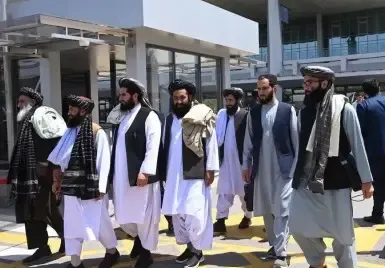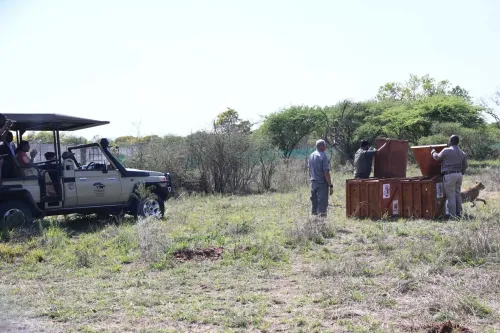Are Refugees Flooding Back to Afghanistan Amid Quake Recovery?

Synopsis
Key Takeaways
- 1.4 million Afghans have returned amidst ongoing crises.
- The Taliban regime is struggling with humanitarian challenges.
- Relations with Pakistan are deteriorating, complicating the situation.
- UN reports indicate a surge in PoR cardholders among returnees.
- More than 3.7 million Afghan refugees are currently in Pakistan.
New Delhi, Sep 6 (NationPress) While some nations engage in military confrontations or impose trade tariffs, Afghanistan is fighting its own internal battles. The largely unrecognized Taliban regime faces numerous challenges, including the return of its citizens who had previously sought asylum elsewhere.
Refugees are continuously arriving even as the nation mourns the loss of lives due to a series of earthquakes that struck the southeastern regions.
According to the UNHCR Pakistan-Afghanistan Returns Emergency Response, as of Sep 4, nearly 1.4 million individuals have returned. Among them, 102,700 were forcibly deported from Pakistan.
In response to the United Nations' appeal to pause repatriation efforts, the spokesperson for the Pakistani foreign ministry replied curtly on Friday, Sep 5, stating, “it is our territory, we decide who stays…”
With relations deteriorating with Pakistan and the ongoing tensions from the Iran-Israel conflict, Afghanistan is seeing a massive influx of people returning to an uncertain future.
In March, Islamabad had reinitiated the 'Illegal Foreigners Repatriation Plan', targeting Afghan Citizenship Card (ACC) holders, who were warned to exit by the end of March or face deportation.
On July 31, the Pakistani government expanded this plan to include Afghan refugees with Proof of Registration (PoR) cards, granting a grace period that concluded on August 31.
The UN refugee agency reports that since April, over 483,700 Afghans have returned from Pakistan, including 145,200 in August alone, with around 55,000 making the trip in just the final four days of that month.
The share of PoR card holders among returnees has steadily increased—from 6% in April to 21-23% between May and July. By August, this proportion surged to 54% (77,700 individuals) of all recorded returns, according to the report.
Since April 1, approximately 57,300 individuals have been arrested and detained, including PoR cardholders. In August alone, around 9,000 arrests were noted, compared to about 3,400 in all of July.
Interestingly, the top three districts for arrests and detentions are Chaghi and Pishin in Balochistan, where the government is attempting to suppress an independence movement.
The UN document states that as of September 4, at least 531,700 Afghans have returned from Pakistan in 2025, leading to a total of about 2.5 million returns from both Iran and Pakistan this year.
Islamabad defends this mass return, citing safety and security concerns, labeling the refugees as “terrorists” or claiming connections to cross-border militancy.
Pakistan also asserts that it can no longer bear the economic burden of hosting over 3.7 million Afghan refugees amid public service challenges.
The government maintains that enforcing deadlines for ACC and PoR cardholders is part of its Illegal Foreigners Repatriation Plan.
Ironically, Pakistan was instrumental in the emergence of the Taliban, particularly its predecessor, the Mujahideen, which was initially supported in the fight against Soviet forces in Afghanistan.
However, relations have soured, leading to armed conflicts at the border, including missile strikes, with Pakistan accusing its neighbor of harboring Baloch rebels and Tehreek-e-Taliban Pakistan (TTP) militants who are waging war against it.









